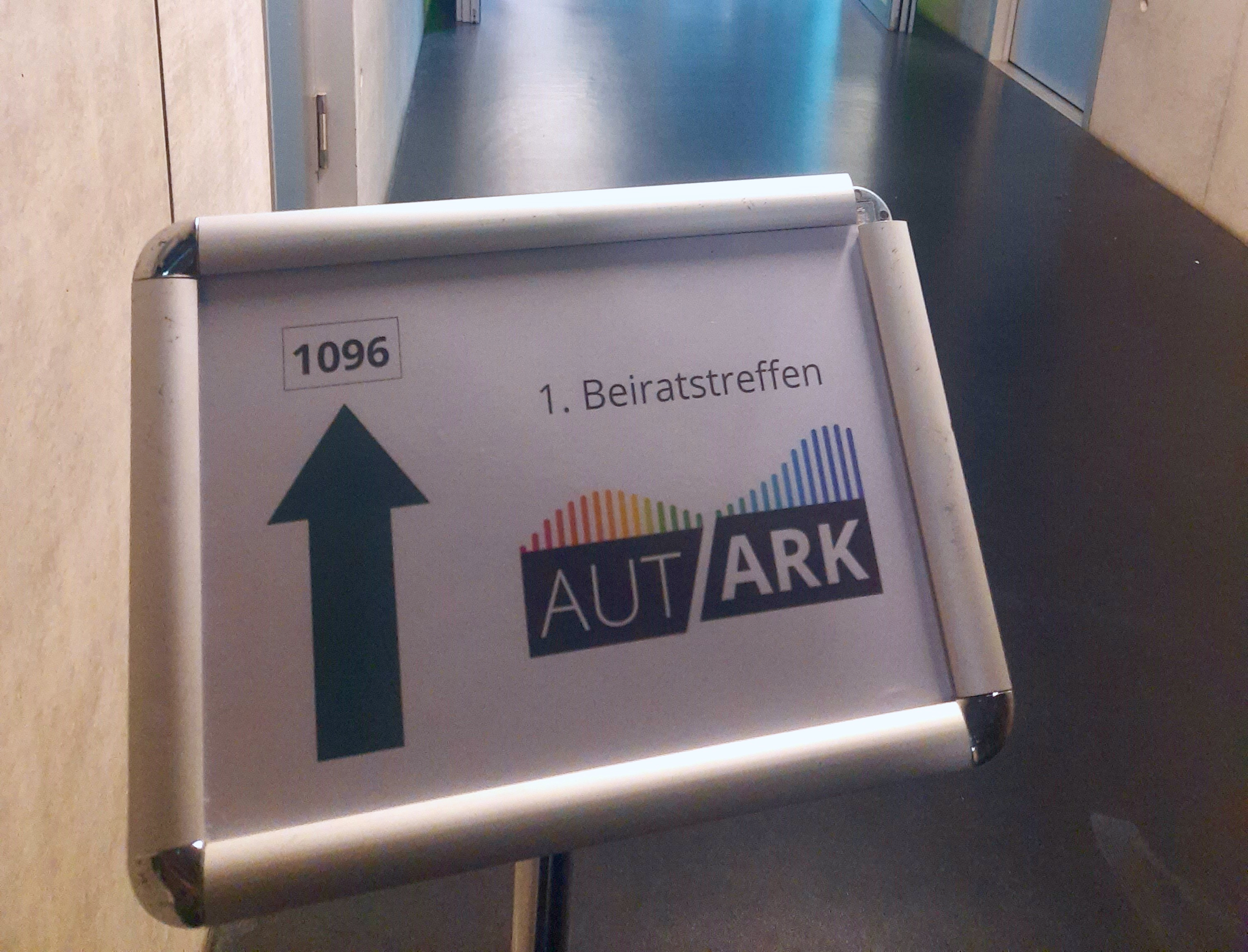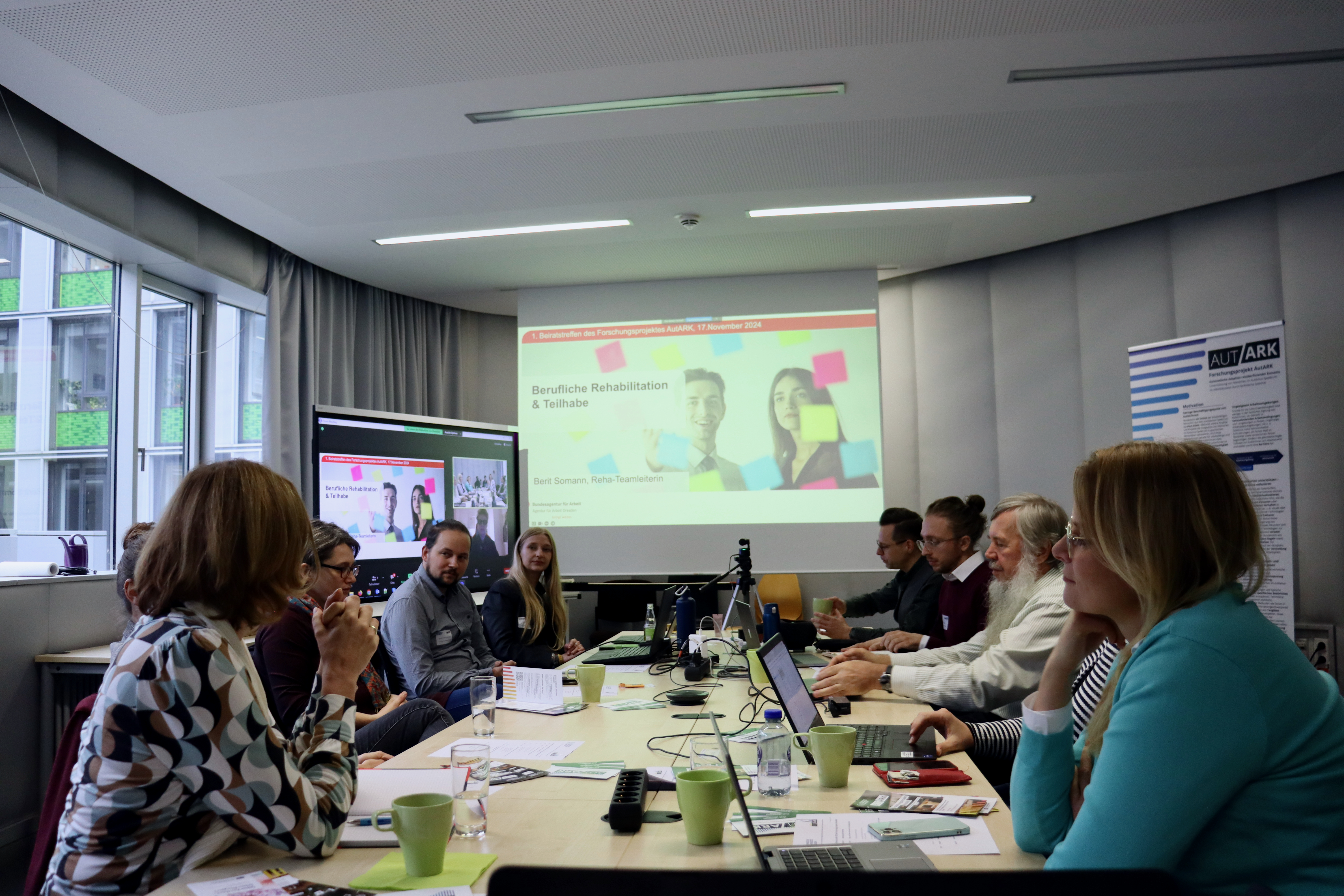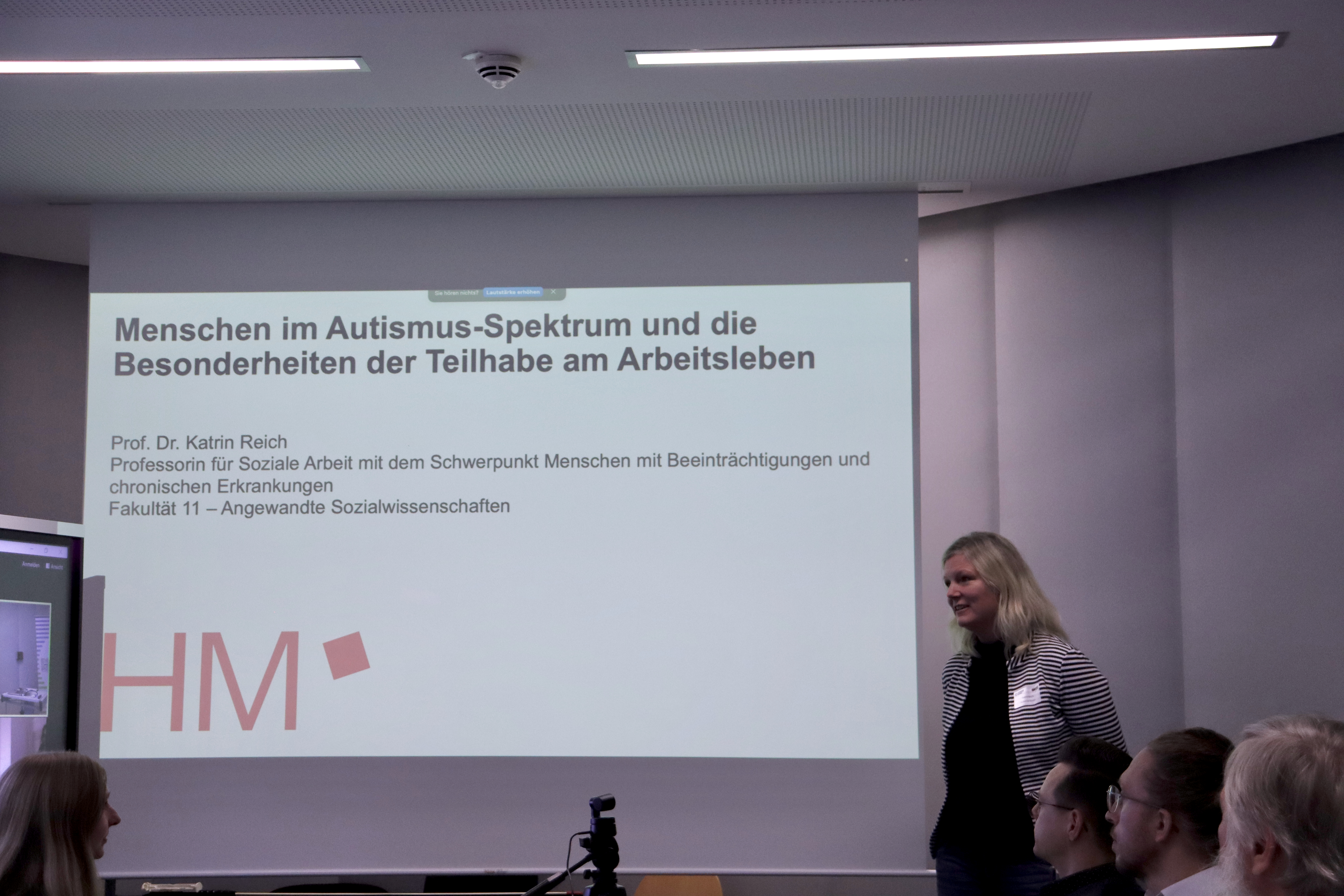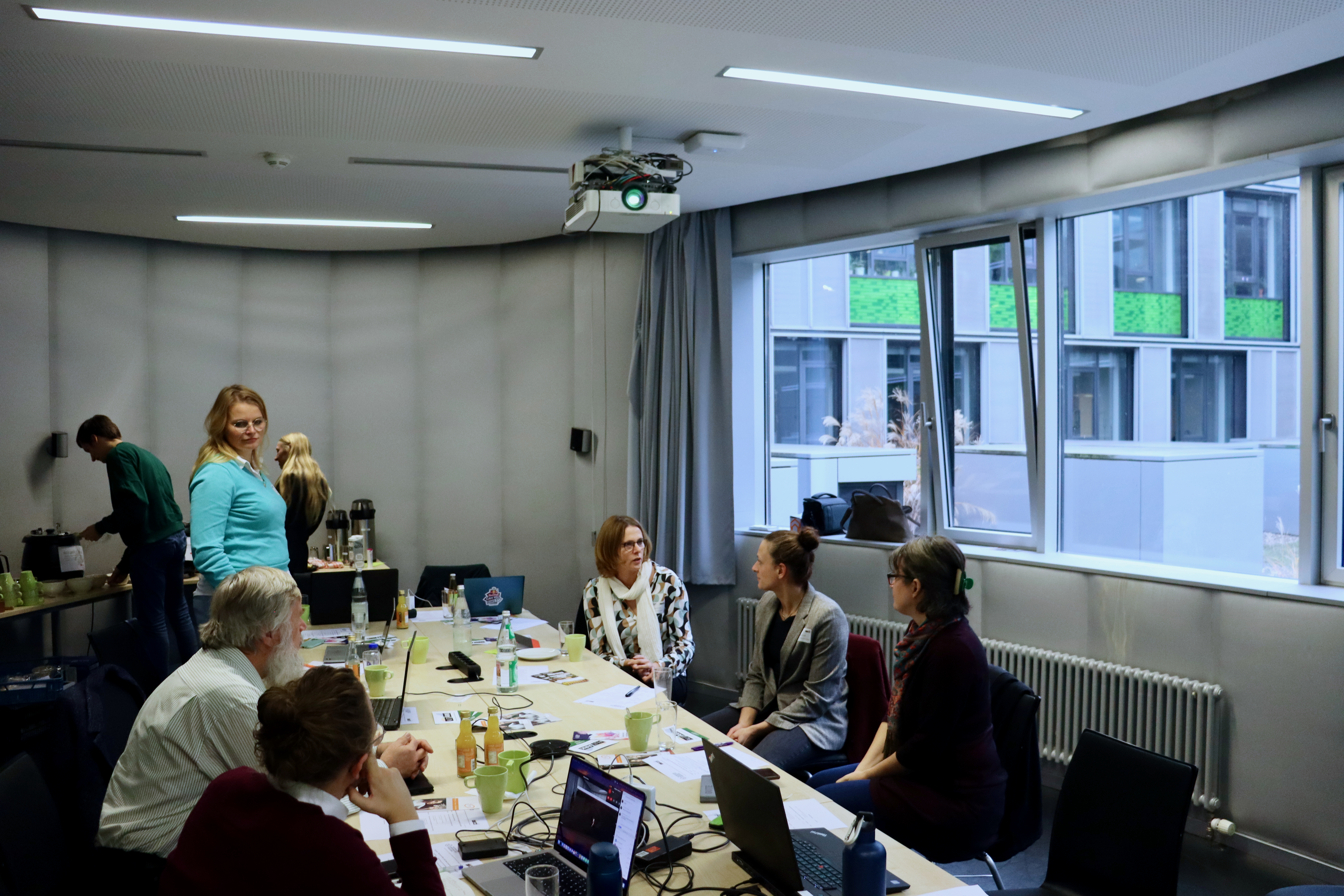After intensive preparations, the first advisory board meeting of the AutARK project took place on 17 November 2023 from 10:00 am to 4:00 pm in the Faculty of Computer Science. Our advisory board comprises 10 institutions and individuals who work in the field of autism and come from various professions, areas of voluntary work or personal backgrounds. In addition, two people on the autism spectrum provided insights into the challenges autistic people face at work environments from a personal perspective.

The Advisory Board meeting, which lasted six hours, began with a brief introduction of the participants, three of whom took part via Zoom due to this week’s rail strike. The morning session offered different perspectives on the topic of autism with three interesting presentations, starting with an overview of autism as it relates to the goals of the AutARK project. Berit Somann from the Federal Employment Agency gave a presentation on responsibilities, support measures, and funding opportunities for people with disabilities in the field of vocational rehabilitation and emphasized that there are also offers for employers. Katrin Reich, a professor of social work specializing in people with disabilities and chronic illnesses, then offered insights from her research experience. She was the project manager of the AUT-1A research project, which focused on the long-term employment and qualification needs of autistic people in the general labor market and emphasized the employer perspective. Ms. Reich is currently working on the follow-up project AUT*CIA, which is particularly focusing on equal employment opportunities for autistic women and developing advice and support services for this target group. The relevance of the joint exchange was particularly evident in the numerous comments, questions, and discussions, some of which continued during the subsequent lunch break.



Subsequently, a brief overview of the project plan, including work packages and milestones as well as current and upcoming goals for the entire duration of the project, was provided. The afternoon session involved the presentation and discussion of the current project findings. Therefore, the participants were first familiarized with the methods and procedures of the human-centered design approach, which is used in software development processes. The discussions focused primarily on the characteristics of the target group, which constitute important influencing factors in the professional environment. Getting in contact with the target group, experiences with performing user studies, and avoiding stigmatization were also intensively discussed. The presentation of results also included concrete drafts of personas (prototypical, verbal, realistic, yet fictitious descriptions of people who are representative of a subgroup), which are to be addressed in the project.
At the end of the day, it was clear that all participants had benefited greatly from the exchange of experiences and that the need for further research and development in this area is enormous. First, we would like to thank all members of the Advisory Board for their participation and their useful suggestions and look forward to continuing the active exchange.
The following pictures provide insights into the atmosphere and content of the advisory board meeting.